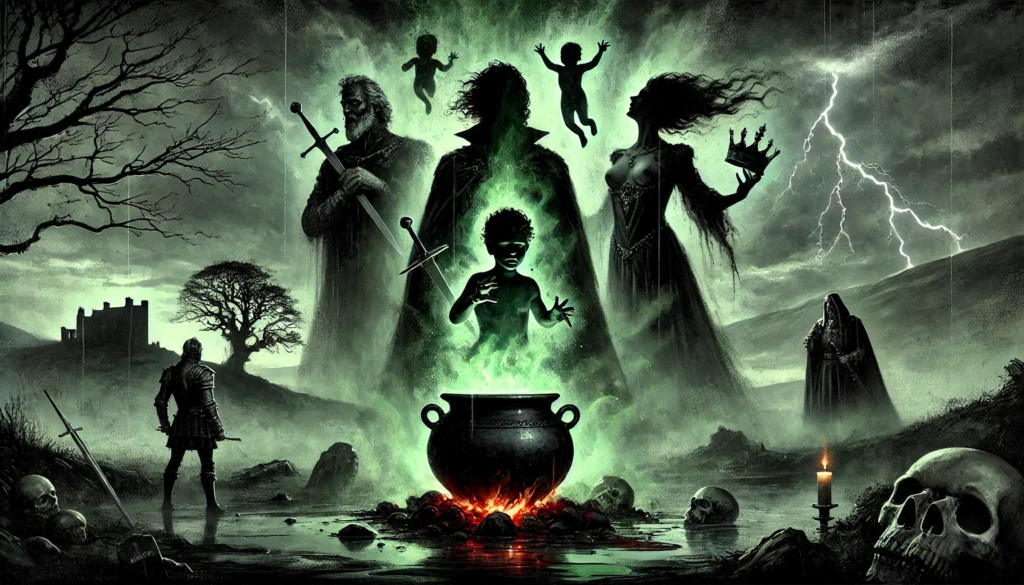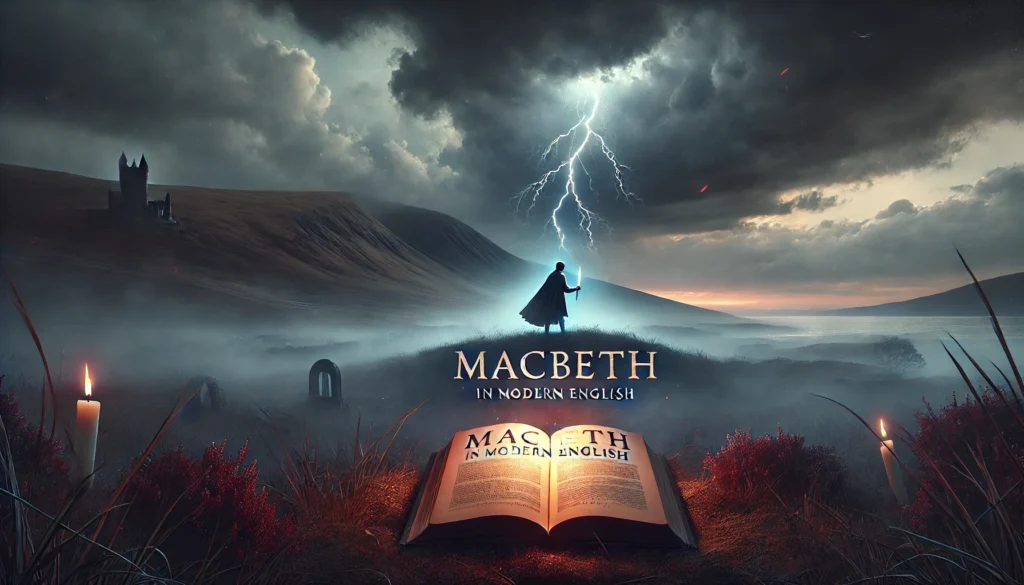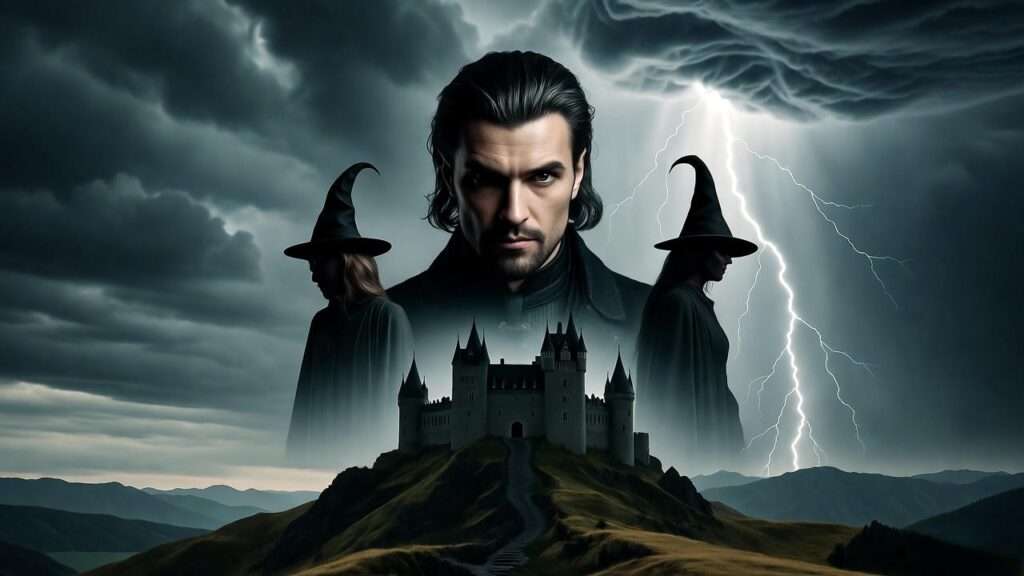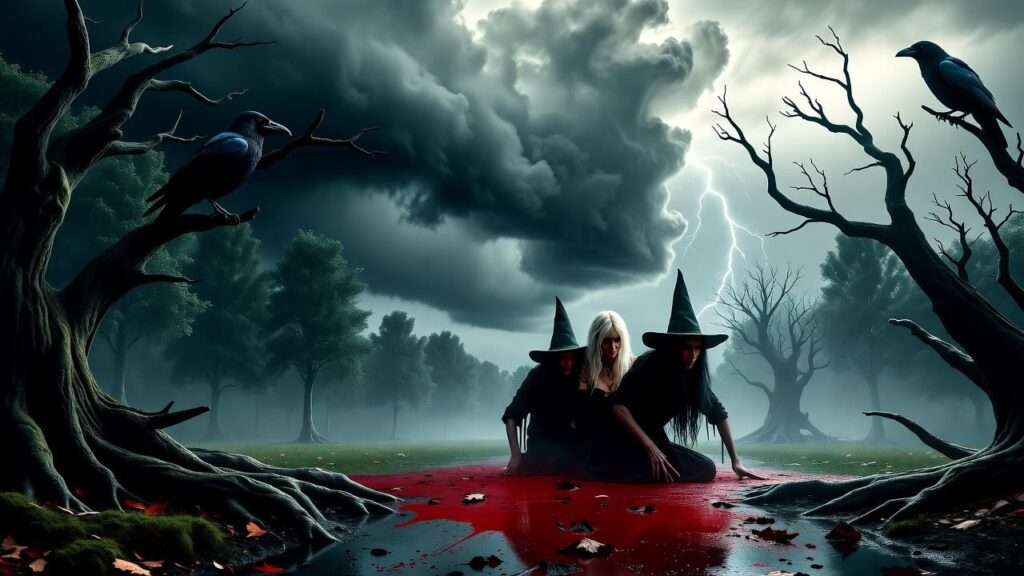Picture a cauldron bubbling under a stormy sky, three witches chanting cryptic prophecies, and a king spiraling into paranoia and bloodshed. This is the haunting world of Macbeth Act 4, a pivotal chapter in Shakespeare’s darkest tragedy. For students, educators, and literature enthusiasts searching for a Macbeth Act 4 summary, this article delivers a clear, comprehensive breakdown of the act’s events, themes, and character arcs. As a Shakespeare scholar with years of teaching and analyzing this play, I’ll guide you through the witches’ manipulative visions, Macbeth’s descent into tyranny, and the rising opposition that sets the stage for the play’s tragic climax. Expect deep insights, historical context, and practical study tips to enrich your understanding of this masterpiece.
Overview of Macbeth Act 4: Context and Importance
Setting the Stage
To fully grasp Macbeth Act 4, we must first revisit the chaos of Acts 1–3. Macbeth, a valiant Scottish thane, is spurred by ambition and his wife’s urging to murder King Duncan, seizing the throne. His paranoia grows, leading to Banquo’s assassination, yet Banquo’s ghost haunts him, signaling his unraveling psyche. By Act 4, Macbeth’s kingship is fragile, built on bloodshed and distrust. This act shifts the narrative into a darker gear, blending supernatural intrigue with human brutality, as Macbeth seeks answers from the witches and commits his most heinous act yet.
Why Act 4 Matters
Act 4 is the fulcrum of Macbeth, intensifying the play’s exploration of fate, ambition, and moral decay. The witches’ prophecies deepen the mystery of Macbeth’s future, while his actions—particularly the slaughter of Macduff’s family—mark his transformation from a conflicted antihero to an irredeemable tyrant. This act also introduces the forces of justice, as Macduff and Malcolm unite to challenge Macbeth’s rule. For readers and students, understanding Act 4 is crucial to appreciating how Shakespeare builds tension and foreshadows the tragic resolution, making it a cornerstone of literary analysis.
Scene-by-Scene Summary of Macbeth Act 4
Scene 1: The Witches’ Cauldron and Prophecies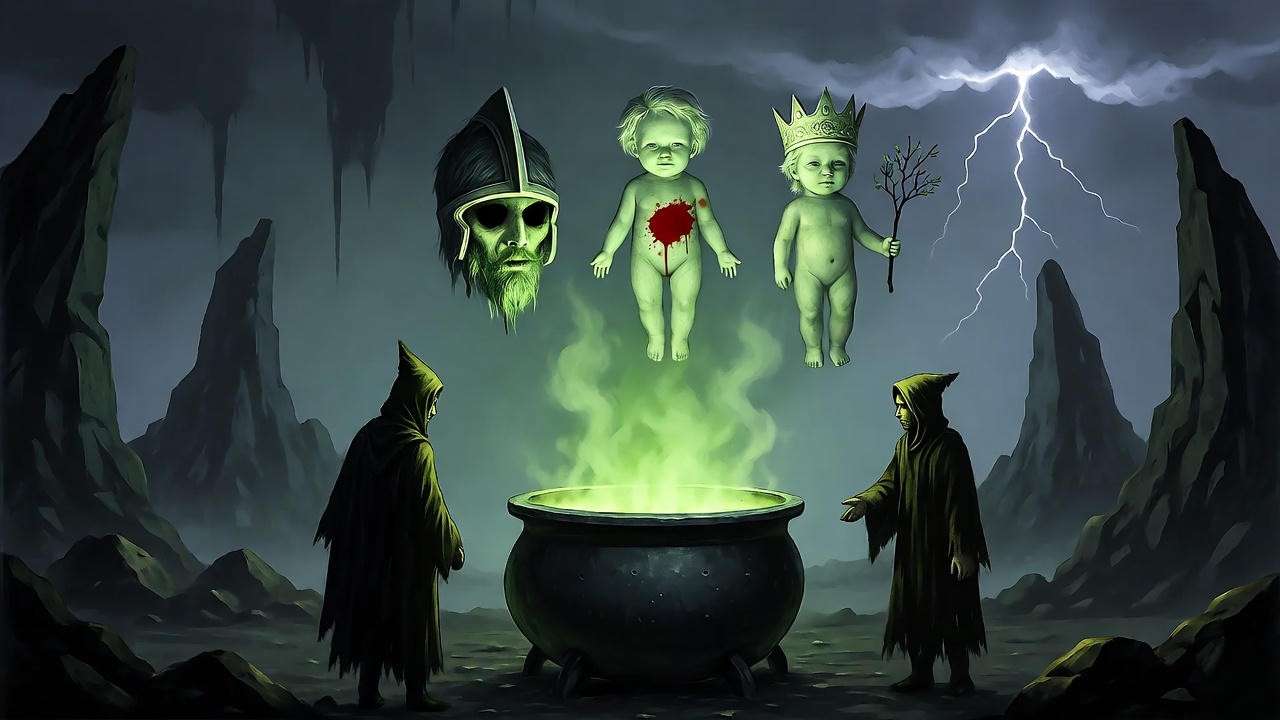
Act 4 opens with a chilling spectacle: the three witches, or Weird Sisters, brew a potion in a cavern, chanting “Double, double toil and trouble.” Macbeth, desperate for clarity about his fate, demands answers. The witches summon three apparitions, each delivering a prophecy that shapes Macbeth’s actions:
- An armed head: Warns Macbeth to beware of Macduff, the Thane of Fife.
- A bloody child: Assures Macbeth that “none of woman born” shall harm him, fueling his false sense of invincibility.
- A child crowned, with a tree in hand: Declares Macbeth will remain undefeated until Birnam Wood moves to Dunsinane Hill.
The witches also show a vision of Banquo’s descendants as future kings, enraging Macbeth. Hecate, the goddess of witchcraft, oversees this scene, amplifying the supernatural menace. As a Shakespeare expert, I note that these prophecies are masterpieces of dramatic irony. Their ambiguous wording misleads Macbeth, who interprets them literally, unaware of their true implications. This scene sets the stage for his reckless confidence and eventual downfall.
Scene 2: The Murder of Macduff’s Family
The tone shifts to heart-wrenching tragedy in Scene 2, set at Macduff’s castle in Fife. Macbeth, fearing Macduff’s loyalty to Malcolm, orders the murder of Macduff’s wife, children, and servants. Lady Macduff, unaware of the danger, laments her husband’s absence, saying, “I have done no harm.” Her young son’s brave defiance—“Thou liest, thou shag-haired villain!”—makes the ensuing slaughter even more devastating. This act of cruelty marks a new low for Macbeth, showcasing his complete moral decay. Unlike Duncan’s murder, which tormented him with guilt, this massacre is calculated, revealing a king consumed by paranoia.
Scene 3: Macduff, Malcolm, and the English Court
In England, Malcolm, Duncan’s exiled son, tests Macduff’s loyalty to ensure he’s not a spy for Macbeth. Malcolm feigns vices—lust, greed, tyranny—to gauge Macduff’s reaction. Satisfied with Macduff’s integrity, Malcolm reveals his true virtues and pledges to fight Macbeth. Their alliance is cemented when Ross delivers the devastating news of Macduff’s family’s murder. Macduff’s grief—“All my pretty ones? Did you say all?”—is a gut-punch, galvanizing his resolve to seek justice. This scene establishes Macduff as a tragic hero and Malcolm as a rightful leader, setting up the rebellion against Macbeth’s tyranny.
Key Themes in Macbeth Act 4
Fate vs. Free Will
Act 4 wrestles with the tension between fate and free will. The witches’ prophecies seem to dictate Macbeth’s path, yet their ambiguity leaves room for choice. Does Macbeth fall because of destiny, or does his misinterpretation of the prophecies drive his actions? Shakespeare invites us to ponder whether Macbeth is a pawn of supernatural forces or a man undone by his own ambition. This theme resonates with modern readers, as we grapple with questions of agency in our own lives, making Act 4 a timeless exploration of human decision-making.
Ambition and Paranoia
Macbeth’s ambition, once a spark ignited by the witches, now fuels a raging fire of paranoia. His decision to murder Macduff’s family stems not from necessity but from fear of losing power. This act reflects a universal truth: unchecked ambition can breed insecurity, leading to destructive choices. For students, this theme offers a lens to analyze leadership failures, from historical tyrants to modern figures consumed by power.
Guilt and Moral Decay
If Acts 1–3 show Macbeth wrestling with guilt, Act 4 reveals a king who has abandoned remorse. The murder of innocent children, a stark contrast to his earlier hesitation over Duncan’s death, underscores his moral decay. Shakespeare uses the motif of children—Macduff’s son, the “child crowned”—to symbolize innocence destroyed by ambition. As a scholar, I see this as Shakespeare’s commentary on the cost of tyranny, a theme that echoes in discussions of ethical leadership today.
Character Development in Act 4
Macbeth: From King to Tyrant
Act 4 solidifies Macbeth’s transformation into a tyrant. His reliance on the witches’ prophecies reflects a loss of agency, as he clings to their assurances rather than forging his own path. His order to kill Macduff’s family, absent any internal conflict, marks him as a figure driven by fear, not strength. This evolution makes Macbeth a compelling study in how power corrupts, a topic I’ve explored in classrooms and lectures on Shakespearean tragedy.
The Witches: Agents of Chaos
The Weird Sisters are more than supernatural plot devices; they embody chaos and moral ambiguity. Their cryptic prophecies manipulate Macbeth, but they never force his hand, raising questions about their true power. In Elizabethan England, where King James I wrote Daemonologie and feared witchcraft, the witches would have terrified audiences. Their role in Act 4 underscores Shakespeare’s genius in blending folklore with psychological depth, a point I emphasize in my analyses of his works.
Macduff and Malcolm: The Seeds of Resistance
Macduff emerges as a tragic hero, his personal loss fueling his quest for justice. His grief humanizes him, contrasting with Macbeth’s cold detachment. Malcolm, meanwhile, grows from a cautious exile into a leader who embodies hope for Scotland’s restoration. Their alliance in Scene 3 lays the groundwork for the play’s resolution, showcasing Shakespeare’s skill in balancing despair with redemption.
Symbolism and Literary Devices in Act 4
The Apparitions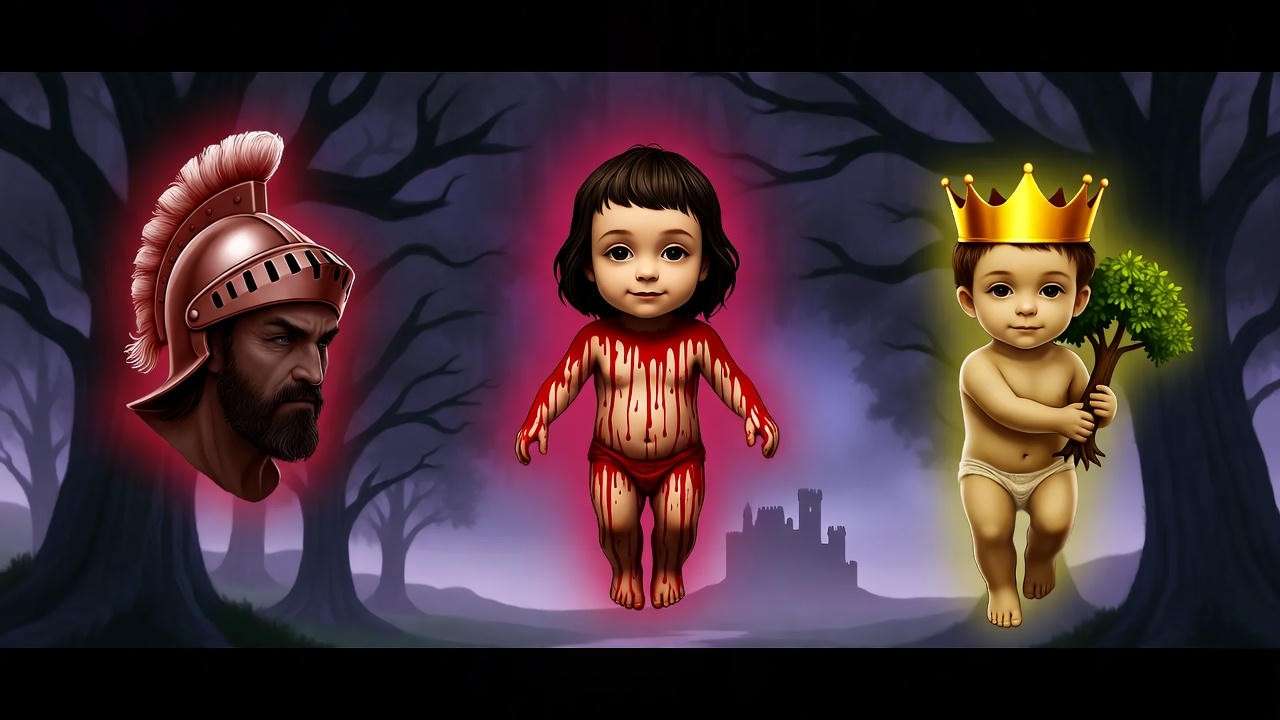
The three apparitions—armed head, bloody child, child crowned—are rich with symbolism. The armed head foreshadows Macduff’s role as Macbeth’s nemesis, the bloody child hints at Macduff’s unique birth, and the crowned child with a tree predicts the moving of Birnam Wood. These images, steeped in ambiguity, drive the play’s suspense and highlight Shakespeare’s mastery of foreshadowing.
Blood and Violence
Blood permeates Act 4, from the witches’ gruesome potion to the slaughter of Macduff’s family. Ross’s lament, “Bleed, bleed, poor country,” captures Scotland’s suffering under Macbeth’s rule. This motif underscores the cost of ambition, a recurring theme in Shakespeare’s tragedies that resonates with readers analyzing cycles of violence.
Dramatic Irony and Foreshadowing
The witches’ prophecies are steeped in dramatic irony. Macbeth believes he’s invincible, but the audience senses the prophecies’ double meanings. This tension keeps readers engaged, as we anticipate Macbeth’s missteps. Shakespeare’s use of foreshadowing—such as the vision of Banquo’s heirs—builds dread, making Act 4 a masterclass in narrative suspense.
Historical and Cultural Context
Elizabethan Views on Witchcraft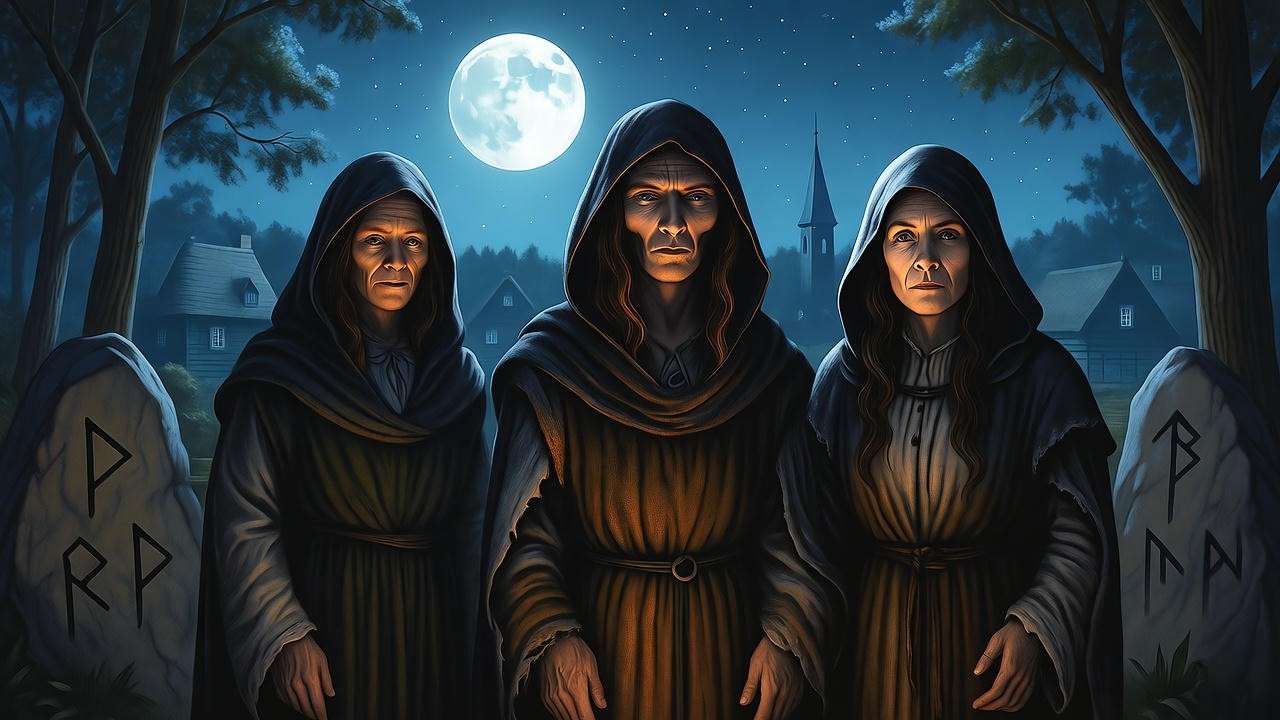
In Shakespeare’s time, witchcraft was a feared and prosecuted phenomenon. King James I, the play’s likely patron, was obsessed with the occult, publishing Daemonologie in 1597. The witches in Act 4, with their spells and apparitions, would have tapped into these fears, making Macbeth a topical commentary on superstition and power. My research into Elizabethan literature confirms this context enriches our understanding of the play’s impact.
Political Undertones
Act 4 reflects Elizabethan anxieties about leadership and treason, particularly after the 1605 Gunpowder Plot. Malcolm’s testing of Macduff mirrors concerns about loyalty in a politically unstable era. By presenting Malcolm as a virtuous ruler, Shakespeare aligns with ideals of just governance, appealing to his audience and reinforcing the play’s relevance.
How Act 4 Sets Up the Play’s Climax
Foreshadowing the Final Conflict
Act 4 plants the seeds for Macbeth’s downfall. The prophecies, while seemingly reassuring, contain the clues to his defeat—Macduff’s vengeance and Birnam Wood’s advance. Macduff’s resolve and Malcolm’s leadership signal the gathering forces of justice, building anticipation for the climactic battle in Act 5.
Macbeth’s Tragic Flaw
Macbeth’s hubris, his belief in his own invincibility, is his tragic flaw. Like Oedipus in Greek tragedy, he misreads the signs, sealing his fate. This classical structure, which I’ve studied extensively, underscores Shakespeare’s skill in crafting timeless narratives that resonate across centuries.
Practical Applications for Students and Educators
Study Tips for Act 4
To master Act 4, create a timeline of the prophecies and their outcomes to track their significance. Memorize key quotes, like “Beware the Thane of Fife” or “All my pretty ones?” for essays and discussions. Form study groups to debate questions like: Are the witches agents of fate or mere catalysts? These strategies, drawn from my teaching experience, help students engage deeply with the text.
Essay-Writing Prompts
- How do the witches’ prophecies in Act 4 shape Macbeth’s fate?
- Is Macbeth a victim of fate or a perpetrator of his own downfall?
- How does the murder of Macduff’s family reflect Shakespeare’s themes of guilt and tyranny?
- Analyze Malcolm’s leadership in Act 4 compared to Macbeth’s.
- How does Shakespeare use dramatic irony in Act 4 to build suspense?
FAQs About Macbeth Act 4
- What do the witches’ prophecies in Act 4 mean? The prophecies warn Macbeth of Macduff, assure him no man born of a woman can harm him, and claim he’s safe until Birnam Wood moves. Their ambiguity misleads him, foreshadowing his downfall.
- Why does Macbeth order the murder of Macduff’s family? Fearing Macduff’s loyalty to Malcolm, Macbeth acts out of paranoia to eliminate threats, showing his descent into tyranny.
- How does Act 4 contribute to Macbeth’s character development? It marks his shift from a guilt-ridden king to a ruthless tyrant, as he embraces violence without remorse.
- What is the significance of the apparitions? The apparitions symbolize Macbeth’s fears and fate, using cryptic imagery to mislead him while foreshadowing his defeat.
- How does Scene 3 set up the play’s resolution? Macduff and Malcolm’s alliance establishes the forces of justice, setting the stage for their rebellion against Macbeth.
Macbeth Act 4 is a haunting pivot in Shakespeare’s tragedy, where the witches’ prophecies, Macbeth’s tyranny, and the seeds of rebellion collide. This Macbeth Act 4 summary has unpacked the act’s scenes, themes, and characters, revealing its role in exploring fate, ambition, and moral decay. Whether you’re a student decoding the text, an educator teaching its nuances, or a literature lover savoring Shakespeare’s craft, Act 4 offers profound insights into the human condition. Revisit the play with these perspectives, explore related articles on our blog, or share your thoughts below. How does Act 4 deepen your view of Macbeth’s tragedy?

